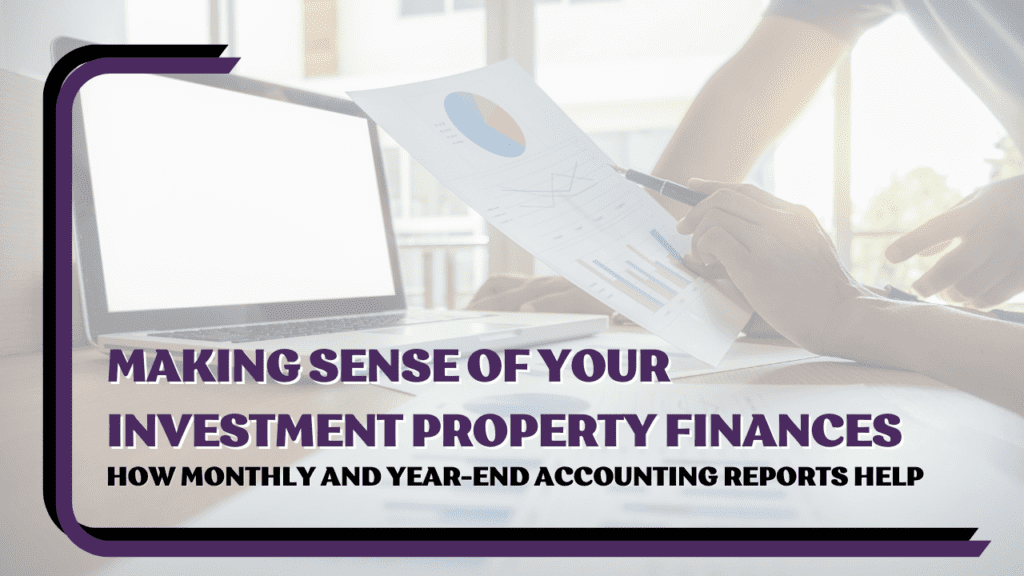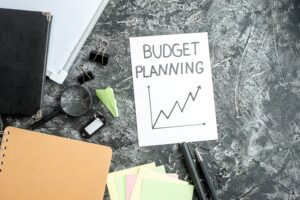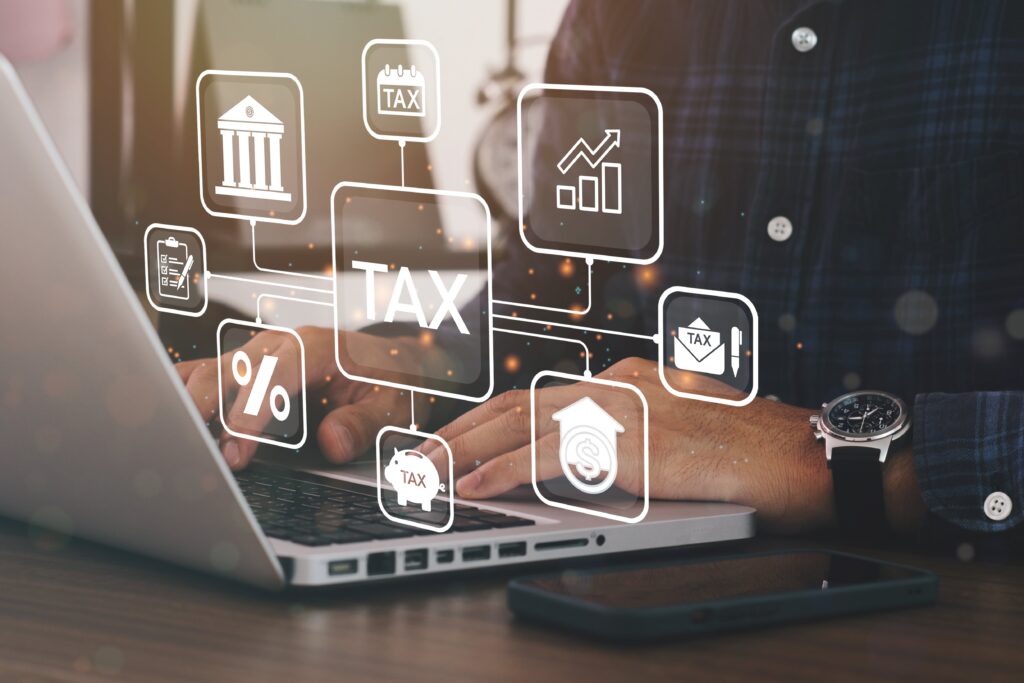
Money matters.
You know this. It’s probably a large part of why you invest in real estate: to make money.

But, how do you know if you’re making money at all? How do you know if you’re earning as much as you’re spending? How do you know if one property in your portfolio is outperforming expectations but the others are mediocre at best?
It comes down to monthly and year-end accounting reports.
This is the only way to make sense of your investment property finances. We have a lot of new tools in property management that can gather extreme amounts of data. We have property management insights and new analytics every day that are either telling us something brand-new or reinforcing what we already expected.
That’s great, and leveraging all the tools and resources that are available is important.
But, when it comes down to what you’re earning – simple math really says it all.
Either you’re making a profit, or you’re not.
Staying ahead of your finances is crucial in successfully managing your investments. Good accounting practices will also keep you compliant with all state and federal regulations, best practices, and of course tax filings.
Legal requirements aside, good accounting allows you to make better decisions about your investment properties and your goals. You need accounting and record-keeping processes in place if you want to know exactly where you stand financially.
That’s why we’re talking about the money today.
You can’t succeed without monthly and year-end reports.
Quick Question: Are You Working with Property Managers?
Financial reporting and accounting are complicated. You should be looking for ways NOT to do it.
By that, we mean that you might want to consider a property management partnership. When you sign on with a full-service property manager in New Jersey, you can expect all of your accounting and bookkeeping to be taken care of for you. There’s no risk that you’ll make an expensive mistake. You’ll save a lot of time not having to balance books and wrangle spreadsheets.
All your challenges of time, resources, and technology will be solved because your property management team will offer you monthly accounting statements that establish when rent is paid, and you’ll also receive ongoing financial reports. Assuming they have an online portal as most management companies do, you’ll have real-time information at your fingertips whenever you want it.
That’s expert bookkeeping and a documented online snapshot of your income and expenses at any given moment.
Maybe you’re not working with a management company.
That’s okay.
(Mostly okay).
If you’re managing on your own, you’ll need a good system for accounting, monthly statements, and other financial records.
Here’s our best set of tips and strategies for New Jersey landlords who want to put together good accounting practices and accurate monthly reports.
Educate Yourself on Accounting Basics

Call it research. Call it continuing education. Call it a passion for numbers.
Whatever you call it, make sure you understand the basic accounting principles that will tell you what you need to know. You can’t exactly throw yourself into monthly reports if you don’t actually know what the numbers mean.
| Here’s an easy definition of accounting:
It’s a system used to track financial transactions, such as rent payments, maintenance expenses, and mortgage payments. There are a couple of key instruments used in most accounting systems.
|
When you can keep accurate financial records and organize the money associated with your rental property or your portfolio, you’ll find you feel more organized.
That’s because you are more organized.
You’ll also find that you’re making informed decisions and maximizing profits. You won’t lose money simply because you didn’t know what you were spending or you hadn’t noticed that your earnings began to tank.
Accounting for Income and Expenses
Tracking income and expenses does not require any advanced financial wizardry.
You probably do this already, even if you don’t realize it. Everyone keeps track of their personal income. Everyone is at least vaguely aware of what they’re spending on coffee every morning and groceries every week.
The same probably holds true with your rental properties. Even if you aren’t analyzing in agonizing detail your income and expense statements right now, you have an idea of what your property is renting for.
That’s the logical starting point. You can’t make much progress on financial reporting and accounting systems if you don’t know what you’re earning every month in rent.
This is where the income statement comes in. The income statement is critical because you need to know what you’re bringing in. The expense side of this statement is also a valuable tool and a quick way to glance at what you’re spending or losing on things like vacancy, maintenance, and professional services. You’ll need this information on both your balance sheet and your income statement for taxes, audits, and any different financing you’d like to do.
When it comes time to sell your investment property, you especially need to know your numbers.
Imagine trying to explain to another investor who might buy your rental home that you have no idea how much you bring in every month or you don’t know what the average maintenance costs are.
Not a great way to sell a thing.
Accounting for income and expenses MUST:
- Be clear
- Be accurate
- Be transparent
Accounting for income and expenses DOES NOT have to be complex, complicated, or overly technical. You don’t need to develop a new app for yourself. This is especially true if you’re renting out a handful of units. Keeping track of the income and expenses can be as simple as plugging the numbers into QuickBooks if that’s what you want to use.
Just please don’t tell us your calculations are in pencil on a legal pad.
That’s not a monthly report. It’s not a financial record.
Our advice? Be consistent. Understand your data.
Working with an accountant or a CPA can give you access to a great resource. But, you’re likely the one who collects rent and pays for repairs. Make sure you can clearly see what you’re earning and what you’re spending on a monthly, quarterly, and annual basis.
Managing Monthly Financial Reports
Do You Have the Right Data?

Ask us to design a monthly financial report for you, and we will make sure to include the following:
|
|
|
|
|
What else needs to show up on that report somewhere, whether as a line item or part of a narrative summary?
- Vacancy loss. Are any units unoccupied? What’s the rental amount that isn’t coming in?
- Deferred repairs. Maybe there is work that’s needed but not in process yet.
This information that we provide to our property management clients is shared in tremendous detail. Investors may not care exactly how much they spent on landscaping this month, but we want the numbers there just in case they’re thinking about switching landscaping companies. They’ll need something to compare the new rates to.
ACCOUNTING BENEFIT: YOU CAN BUDGET BETTER!
 Anyone running their own business is acutely aware of the importance of budgeting.
Anyone running their own business is acutely aware of the importance of budgeting.
You probably make a budget for your own personal household as well.
Budgeting is important for any business owner, and when you’re renting out properties, you should be thinking about yourself as a business owner. This requires a reliable system for collecting information on your finances and documenting your income and expenses, you can do a better job budgeting. There are fewer surprise expenses. Less of a risk that you’ll go over budget.
Prepare to budget for:
- Maintenance, including emergency repairs, routine work, and preventative maintenance.
- Vacancy, whether we’re talking about the move-out dates you know are coming up or the potentially surprise intentions to vacate.
- Tenant turnover. How much do you think it will cost to get a unit ready for a new tenant?
The Maintenance Reserve is Your Friend
We always try to sell owners and investors on the idea of a maintenance reserve.
Think of it like an emergency savings account. When you have a healthy maintenance reserve, you can prepare for large expenses and not have a heart attack when a water heater needs to be replaced or the HVAC system completely breaks down.
Maintenance reserves are easy. All you have to do is set aside a portion of your monthly rent in case a major repair is needed or an unexpected catastrophe comes with an immediate bill.
By looking at what you have coming in, you can decide how much you’re comfortable saving for those maintenance repairs and replacements in the future. You’ll also feel less stressed when an emergency does occur.
We’re going to say it again: Track your budget! Make adjustments as necessary.
Take a look at the impact inflation has had on your maintenance costs. Whether you’re paying for a simple paint job or getting your kitchen remodeled, inflation has driven the cost of labor, materials, and supplies to new levels this year. You need to be prepared for higher costs. The updates and quick fixes you make today will not cost the same as they did even a year ago. Make room in your budget so you’re not at a disadvantage when things cost more next year and the year after.
Choosing the Best Accounting Software and Leveraging Technology
Let’s talk tech.
We like technology, especially when it comes to things such as accounting and financial reports. What works, though, and how can you access the tools that you need as an independent landlord or real estate investor who does not have the power and the leverage of a large property management company?
Here are a few things to think about:
|
1st Tip You’re pretty smart, and certainly, you can create monthly reports manually, but does that mean you should? It can suck a lot of time out of your day and week, and even if you got straight As in math, it’s easy to make a mistake. Manual data entry and accounting are over. The entire industry has been modernized, and you should take advantage of some of the great systems and platforms that are out there. |
2nd Tip Make good choices. Choosing a reliable accounting software system is an invaluable way to streamline the process and make it easier to generate the financial reports you need. Many of these programs offer automatic tracking of transactions, generate financial statements, and offer budgeting tools. Research and choose a software program or a platform that integrates with your current systems, is user-friendly, and meets your specific business needs. |
3rd Tip Is your current system working for you? You might just be comfortable with it. Take a chance and be willing to evolve. Unless you have made some updates recently, you can likely benefit from an overhaul and a bit of new tech. Hopefully, you’re working within an accounting system that can integrate other parts of your leasing, management, and maintenance needs. Invest in a software program that makes you more efficient. |
Let’s Talk Taxes

Oh, taxes. No one likes to think about them. Except maybe tax attorneys and passionate IRS employees.
Taxes can feel like a burden. But, here’s the good news: a lot of tax benefits are available when you own rental property in New Jersey. Make sure you’re taking advantage of every tax benefit that you’re entitled to, otherwise, you’re essentially leaving money on the table. As a rental property owner, you’re likely reporting rental income on Schedule E of IRS Form 1040. Your rental property accounting systems should be designed for easy reporting.
Set up your tax accounting in categories for rental income and expenses that break out into maintenance, professional services, refunds, advertising, mortgage interest, HOA fees, etc. Make tax time as easy as possible. Good financial reporting will facilitate that.
|
What You Need to Report as Income to the IRS Rental income must be reported for the year in which it was paid by the tenant and received by you. This income may include goods or services given to you by a tenant in exchange for rent. Rental income is taxable, but those security deposits you collected are not (at least not at the time that you receive them). |
What You Can Deduct on Your Taxes Your income is easily offset by your losses. Some of the expenses that the IRS will consider losses in relation to your rental property include:
|
We’re really great property managers, but we aren’t tax attorneys. Before you make any deductions, talk to your tax professional. We’re not trying to get anyone in trouble with the IRS…
IT’S OKAY TO ASK FOR HELP

Why suffer?
Why not ask for help from a New Jersey property manager who can help you get organized or even take over the accounting portion of property management on your behalf? Or, if you don’t want to invest in a property management relationship, at least reach out to an accountant or a financial adviser.
When accounting and financial reporting seems overwhelming (and it is for A LOT of real estate investors) or outside of your skillset, consider hiring a professional accountant or a CPA. These experts can help you keep track of your finances, prepare monthly reports, and offer guidance on financial planning and tax implications. This can provide peace of mind and ensure that you’re meeting all legal requirements and maximizing your profits.
As we mentioned, there’s also the option of property management. Your management company will have someone responsible for taking care of all the financial reporting and accounting that’s associated with your property. We’ll stay organized and consistent in our accounting and financial reporting.
Some people are avid DIY-ers. We get it. When it’s not enough to lease and manage and maintain your investment property and you really love dealing with tenants and their concerns, why not add some math to your to-do list?
We respect the self-managing landlord, and we’re here to be your resource. If you’re inclined to keep it all to yourself, set up a system and stick to it. You can reduce errors, identify areas where costs can be reduced, and improve your overall financial health. Consider creating an accounting calendar or setting reminders for monthly or quarterly reports to ensure that you’re staying on track.
Monthly and annual financial reports are an important part of rental property ownership, and understanding basic accounting practices can help you maximize your profits and build credibility in your rental business.
Let us know what kind of help and support you need.
Please contact us at Realty Solutions if you want to talk about your investment goals and your next steps. We lease, manage, and maintain homes in Audubon, Collingswood, Cherry Hill, Haddon Heights, Blackwood, and the surrounding communities.
